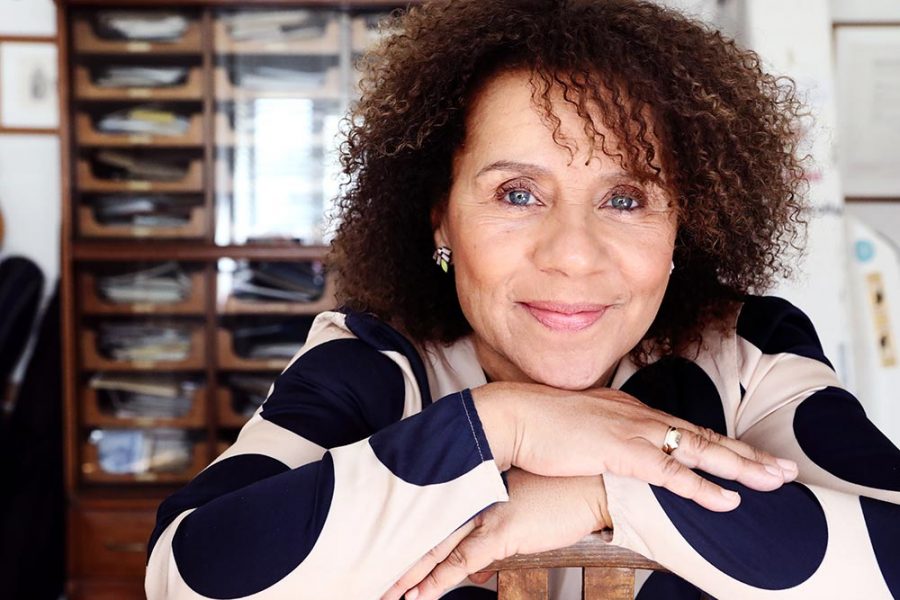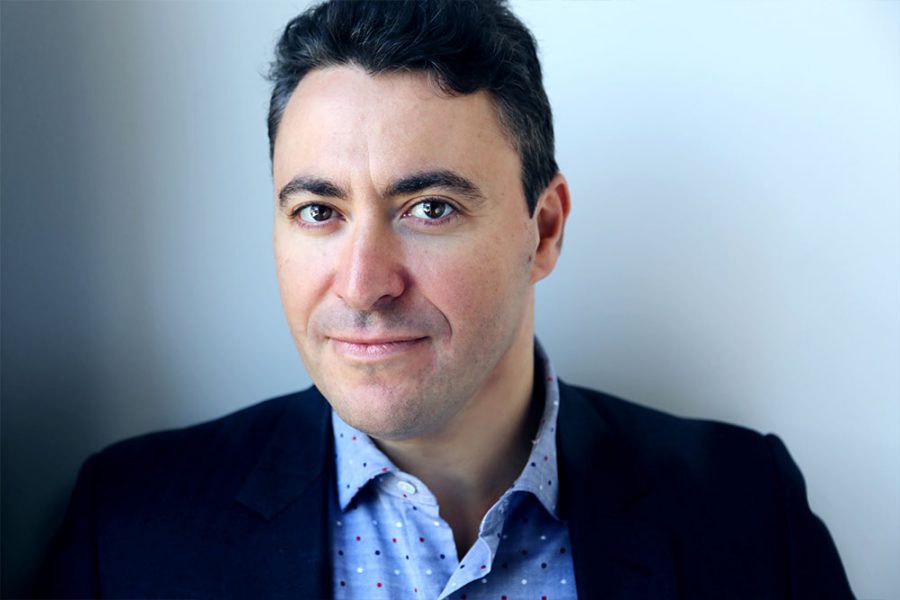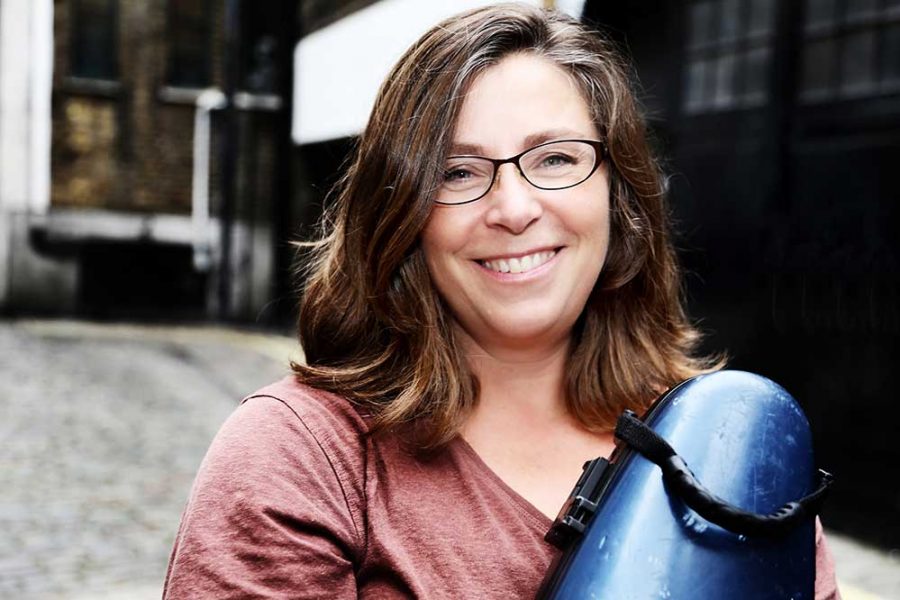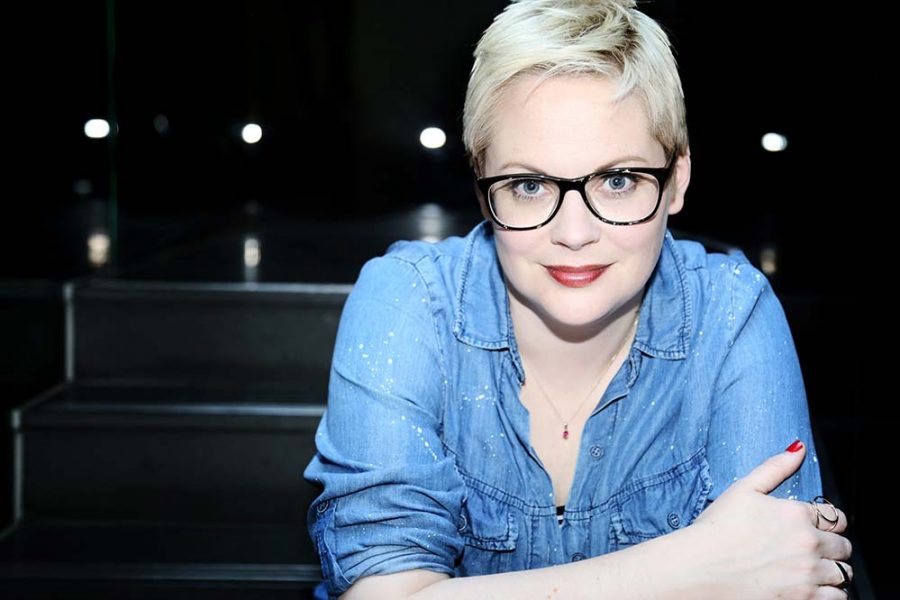An Aspirational Outlook with Oboist Aisling Casey

August 2018
Interview and photos by
Frances Marshall
Edited by
Lesley Bates
Irish oboist Aisling Casey is Principal Oboe with the Netherlands Radio Philharmonic Orchestra. She is a founder member of adventurous award-winning collective LUDWIG, a founding member of Splendor, a new temple for music in the centre of Amsterdam and a passionate teacher.
Born in Cork, she studied at the Cork School of Music where her father was a teacher. She played with the Cork Youth Orchestra, the National Youth Orchestra of Ireland and the European Union Youth Orchestra. She completed a BA degree in Music and Applied Psychology at University College Cork before moving to Hanover to study with Professor Klaus Becker.
Shortly after arriving in Amsterdam to join the Netherlands Philharmonic Orchestra and Netherlands Chamber Orchestra, she won first prize in the Barbirolli International Oboe Competition. She is married to double bassist Wilmar de Visser and they have one daughter.
Here, Final Note gets an insight into the importance of strong front teeth, the joy of watching someone surrounded by orchestral sound and why she feels music should be socially relevant.
...he wanted to show me that you can play absolutely anything if you just slow it down first."

You were born in Cork, where classical music has a wonderful presence. Who was responsible for your exposure to music?
My parents, and in particular my father, because he worked in the School of Music. There was music in the house from a very young age. He played clarinet and bassoon and there were lots of wind instruments at home. I was drawn to clarinet, but at five years of age, I was way too young to play it. When I was nine, I did actually pick it up, but it kept squeaking because my fingers were too small. So my dad brought home an oboe one day. I thought it was just another version of a clarinet. But when I played it, it didn’t squeak and I immediately thought, ‘yes I can play this’ so I naturally wanted to continue.
How much does age come into a child’s capability to play a wind instrument?
Wind instruments are very physical. Yes, the piano is physical when you get to a certain level, but to make a sound is relatively easy by simply pressing a key. With a wind instrument, it’s very different, you need strength and stamina to hold the instrument.
To play the oboe, you need your front teeth to hold the reed, but it’s also a strength thing as well and your body has to be big enough. That’s why you can’t really start until you’re about nine or ten. We do have smaller instruments to start on at an earlier age – like when my daughter was seven, I tried her on a junior oboe – but it was still very strenuous.
One common thing that we come across when we interview people who have done extremely well is that they had exposure at a young age to extremely high standards. Do you think your Dad being a professional player himself and a teacher in CIT heightened your awareness?
Absolutely, because I was going to give up the clarinet and he was the one who knew to bring the oboe home to me. When I was practicing, he’d come in and check if there was anything he could help me with. It was a very positive relationship. One thing he used to do on my scores was alter the tempos to a snail’s pace – and that was the genius of my dad, because he wanted to show me that you can play absolutely anything if you just slow it down first. He pushed me along in the right way, one step at a time.
Do you think it’s rare that someone would start on the oboe, or is it something that they evolve to from playing with something else?
Music education is not all about the stick you have in your hand. It’s all about the aural training and developing musicality from a young age – this is what’s brilliant about the Cork School of Music. Their aural training is fantastic and the students get a brilliant foundation in this area. It’s something that can be developed at a really young age, and it’s about making music, not playing one particular instrument. The instrument is a way to express yourself, so it’s really important to have age appropriate ensembles playing together because, at the end of the day, that’s the fun part. Then as they become teenagers it’s the social element that keeps them going. Even at my age, it still needs to be fun, otherwise what’s the point?
I’d been playing for a couple of months and then I got to play it in front of the class, I thought I was fantastic, but the expression on the teachers face said something else. But when you’re that age, you relish the idea that you’re mastering something. I was very ambitious and I really wanted to be good at what I was doing. As a child, music gives you great self esteem and a new circle of friends that I still have.
I was playing in the Cork Youth Orchestra, which was fabulous and a really good training ground and then suddenly I’m in the middle of the Junior Irish Youth Orchestra with over 150 people, and I remember thinking ‘my God, that sound!’ And I still get that feeling, and it reminds me that I really have a great job. I love watching how it affects other people too; we were working with (French DJ) David Guetta and he had never worked with an orchestra, and when he stood in the middle of us, his eyes lit up like a kid in sweet shop. You can’t explain the sound until you experience it.

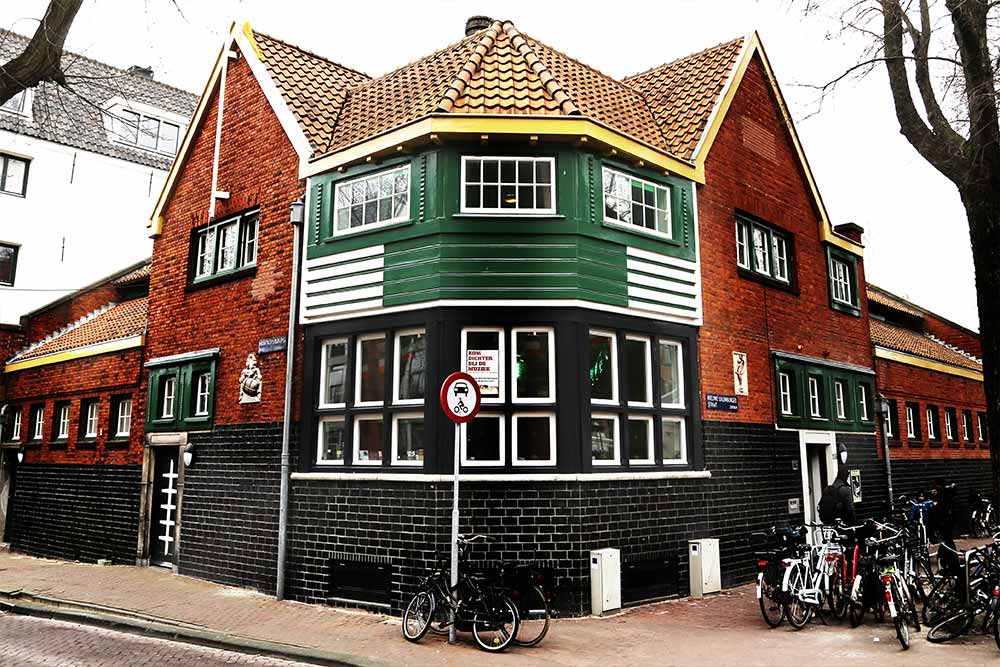
Splendor, Amsterdam


Splendor, Amsterdam
Music-making and musicianship takes time and you can’t rush it. It’s a very organic process: you have to get to know your body and develop as a person."

Do you think your arts degree in Cork gave you that safe place and the grounding to develop as a person rather than move abroad so young?
Absolutely, and what’s wonderful about playing the oboe in Ireland is that nobody does it so I was constantly working and heading up to Dublin for my lessons. It was very easy to be seen as the best because I was one of the only players at the time and building up a huge amount of experience.
I wanted to study abroad when I was about 17 and my parents said I needed a degree first. So I went to University College Cork and got my arts degree, which was good because it delayed me by three years.
When you decided to leave Ireland, what was the reason and how did you choose your new country of residence?
I had romantic notions of going to Vienna because it’s the central place in classical music etc. But if I’d done that I would have had to learn the Viennese oboe, and at the time the orchestra only took men. So I got into the European Youth Orchestra and I asked who’s good to study with. I started looking at Germany, played for Klaus Becker and he accepted me so I moved to Hanover for 4 years.
When I was studying with Klaus, he reminded us constantly that we had the rest of our lives to audition for orchestras, but we never get this time back to feel safe and make mistakes. Music-making and musicianship takes time and you can’t rush it. It’s a very organic process: you have to get to know your body and develop as a person. Your brain isn’t totally developed when you’re twenty. There’s no rush, if you’re lucky enough to get into an orchestra, you’re going to be in it till you’re at least 67.
How did you come to hold the position of Principal Oboe with the Netherlands Radio Philharmonic Orchestra?
I applied to the Netherlands Philharmonic thinking they’d put me on the extra list if I was lucky, and they gave me the job, so that wasn’t planned at all. I ended up moving country because of the results of that audition. You just don’t know.
Then in 2008 I became principal with the Radio Chamber Orchestra. There was a merger in 2013 so I moved to the Netherlands Radio Philharmonic Orchestra.
Holland is a very open place for new ideas. One of the brilliant things that the Netherlands Radio Philharmonic Orchestra does is that it brings some audience members into the orchestra to allow them to experience the sound. We do give them earplugs because sometimes it does overwhelm them. But I love watching people’s faces.
Another thing we do is on the Thursday before the Friday concert, we’ll hold a night where the piece is played and the audience are given the background. You can bring your drinks in, it’s very low-key, we’ll have lighting, dry ice machines, you name it. It’s a completely different environment for the audience to experience classical music. This is a huge hit and people love it.
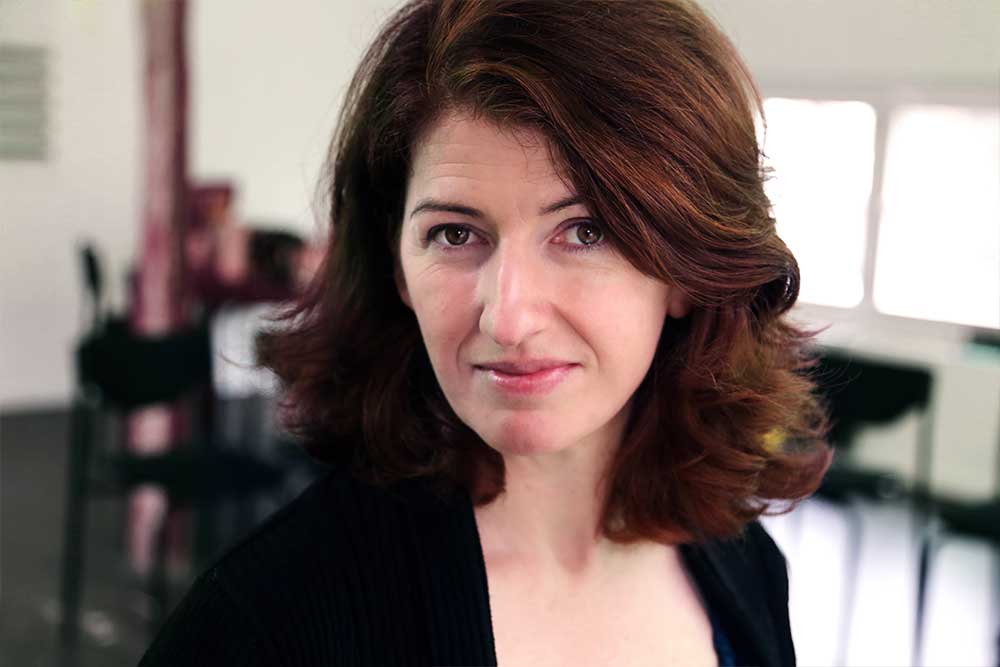


Living now in Amsterdam, how involved are you in the Irish Classical Music scene?
I play now and then. There’s a lot I’m not available to do, but when I can I love to come home, there’s nothing like it.
What were the key moments in your life that led to your extremely successful career?
It’s hard to know whether or not it was a gradual build or key moments, probably both… I ended up in Holland because of the European Union Youth Orchestra and I got to know Wilmar. That was definitely a key moment, because it determined where my life was going to be although I didn’t realise that at the time. The fact that I couldn’t afford to go to London made me go to Germany and then I got the best teacher ever, who suited me perfectly. So that hugely contributed to the player I am.
You won first prize in the Barbirolli International Oboe Competition – what did this do for your career?
Competitions are great in that the preparation is the most important part of it, because you learn the material and you put yourself under pressure to get it done, which is a big advantage. It wasn’t a competition that was going to make you world famous, but it was something that got you noted and I got some lovely recitals and contacts from it.
You’re a founding member of the collective LUDWIG. Tell us about it.
We had massive arts cuts a few years ago in the Netherlands and, in particular, the Radio Centre was targeted, including the chamber orchestra, the choir and the philharmonic. All I could think about was that there was going to be less music in the world. What was happening was that some of the country’s greatest expertise was being thrown out onto the street, so some of us decided that we weren’t going to let it happen. We were going to form a new group and it was going to be different: not an orchestra.
LUDWIG is a collective but we programme from the content, rather the ensemble. That way we get a lot of freedom with artistic expression and really exciting programmes. If the programme requires six recorders and ten metronomes, then that’s what we become for the performance.
We also wanted it to be socially relevant. The reason all these cuts happened was that people didn’t realise how important music was. I realised that was our mistake and we have to take some responsibility for that. We didn’t get that message across. So we set up a department called LUDWIG and the Brain, and I was instrumental in setting up the dementia side of that, which we called LUDWIG for Life. It’s not a case of playing music for people in nursing homes with severe dementia, but getting them and their caregivers to play along as well. It’s about communicating. They all have an instrument, we react to whatever the resident does with their instrument and suddenly there’s a dialogue going on. It’s been documented that the residents are much calmer, they don’t get as frustrated as they used to.
It’s an incredible project and we’re now working with scientists to look at the effect on pain relief through music. There’s many aspects, but we’re focusing on making it a social organisation rather than exclusively an arts organisation.
LUDWIG won a Grammy in 2018 for its first recording with conductor/soprano Barbara Hannigan…
Barbara Hannigan is wonderful and fearless. In rehearsal, we perform as though we’re in concert. We totally go for it, which is a brilliant way to prepare for a concert – to practice as if you’re on stage and always go for the music. This is what I’ve learned from Barbara, and then that’s why the concerts are so amazing – you feel very comfortable on stage because you’ve all rehearsed it that way.
Another collective that you’re involved in is Splendor – what exactly is the idea behind this innovative space?
My husband Wilmar de Visser, was the brains behind Splendor. He thought: wouldn’t it be amazing to have a clubhouse where we could all play all genres together because in a classical world you just meet classical musicians, same for jazz etc. So his vision was to create a space where all of us could meet, collaborate, exchange and use one other’s networks. So he developed that into Splendor.
We have 1250 audience members, we’re in our fifth year and it’s been incredible. We won the Amsterdam arts prize. It’s also now a well known place and it proves that anything can happen.
We’re about to set up one in Rotterdam and then Vancouver.
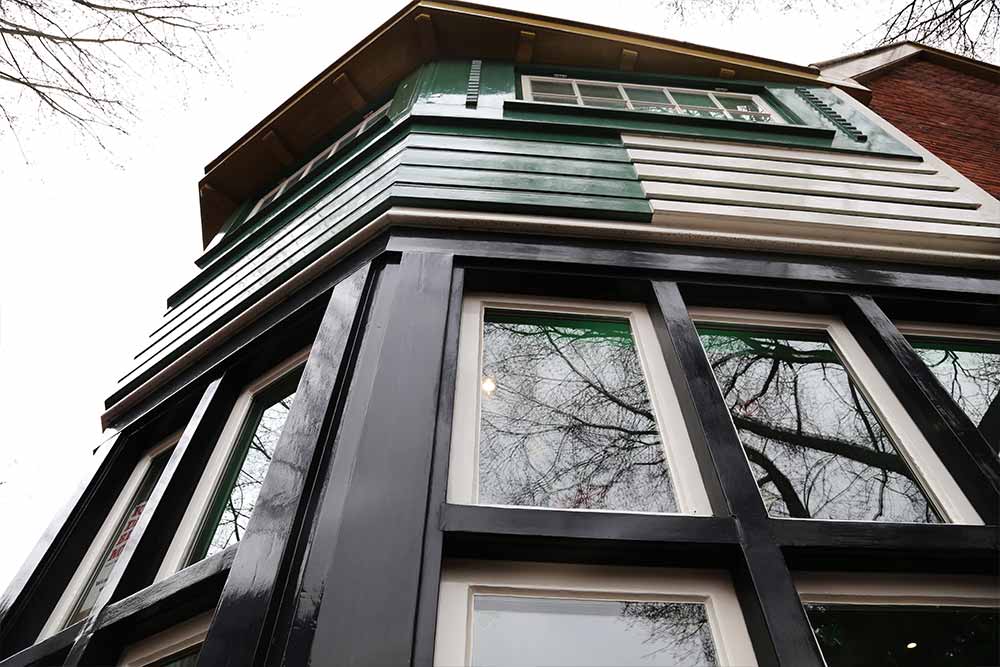

The one thing I’m looking for is that I want to hear music, I don’t want to hear the instrument. If somebody makes me forget the instrument they’re playing – you’ve got me!"

You regularly sit on jury panels: what is it that you’re looking for in a musician and what is the most common mistake made?
The one thing I’m looking for is that I want to hear music, I don’t want to hear the instrument. If somebody makes me forget the instrument they’re playing – you’ve got me! At the end of the day, you’re using the instrument to convey something. I want to listen to you and if you’d got something to say I want to hear it without you stumbling. And that’s why practice is so important. The technique can only become brilliant when the scales, etudes etc are practiced, because they’re the building blocks for the technique. You have to master your technique of an instrument. Otherwise you can’t express yourself.
Teaching is a huge part of your life, how do you prepare your students psychologically for this industry?
I always try and find out what their goal is. Mostly, it’s to get a job in an orchestra and I have to be very real with them – the best musicians sometimes don’t get the orchestra job and even when they do, they don’t know if the orchestra is going to last. So I make it very clear that they need to be very broad-thinking and they have to put in the hours, but they need to enjoy what they’re doing so they can play incredibly freely. My focus is to ensure that there’s little or no tension. This isn’t just about playing it’s about preventing injuries down the line. So many musicians injure themselves because they’re doing this repetitive motion everyday for hours. Many haven’t thought how to use their bodies, so I‘m very aware of that. Once they work out the tension and where it’s coming from, that’s a huge step towards being able to have a long career.
When it comes to auditions, a friend of mine said to me recently, ‘People should prepare for auditions as if they’re preparing for a bank robbery’. You can’t leave anything to chance. You need to have every single tiny detail covered. Also, it’s so important to play with other people as much as you can, and always try and play with people who are slightly better than you. Then try and play with amateur musicians in an orchestra – you’ll learn so much because those people are music lovers and they’re your future audience. Always expand your network as wide as possible; music doesn’t exist in isolation – it needs constant support from as many areas as possible.
Is there anything physically you do outside of actually playing the oboe to enhance your art form?
One thing that really helped my playing was Alexander Technique and that’s all about finding balance in your body. When you find that balance, it releases tension in your mind and body. Many people focus on the instrument and how the instrument plays but you play with your body. Your body is where the sound originates. It also helps with stage fright as it’s a great technique for staying calm, focused and really being in the music. From that, I discovered body mapping. It’s an extension of Alexander Technique, but for me it’s more concrete and similar to a biology lesson – you can see it in a book – whereas Alexander Technique is a lot more about thinking in new directions, which is more abstract.
What’s coming up for you?
We’re going to Turkey with LUDWIG and then going on a European tour of the Rake’s Progress with Barbara Hannigan and then to America. After we received the Grammy, doors just opened that didn’t before, it’s a wonderful thing. Projects that would have been seen as too expensive to a promoter/venue are now not an issue.
To find out more about LUDWIG see: www.ludwiglive.nl
All images displayed in this article are subject to copyright.
Share this article


